Results
-
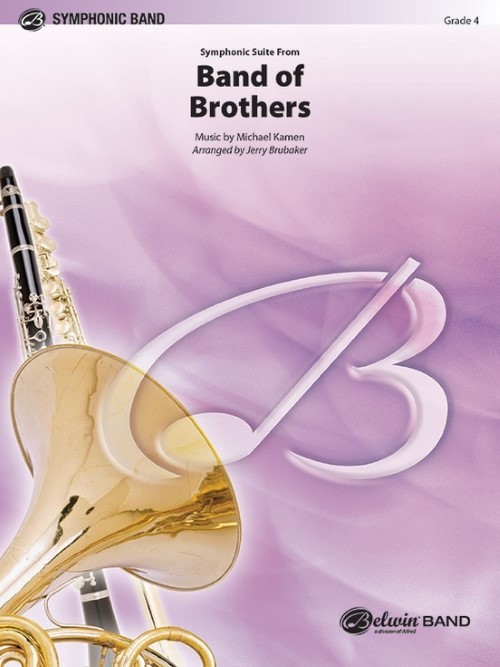 £84.50
£84.50Band of Brothers, Symphonic Suite from (Concert Band - Score and Parts) - Kamen, Michael - Brubaker, Jerry
From the HBO mini-series, Jerry Brubaker has captured the essence of Michael Kamen's score in this diverse medley. From the lovely soaring ballads to the drivingly intense splashes of sound, it's all there. Simply stunning! Duration: 5.15
Estimated dispatch 7-14 working days
-
 £84.50
£84.50Band of Brothers Symphonic Suite - Michael Kamen
From the HBO mini-series, Jerry Brubaker has captured the essence of Michael Kamen's score in this diverse medley for Symphonic or Concert Band. From the lovely soaring ballads to the drivingly intense splashes of sound, it's allthere. Simply stunning! (5:13)
Estimated dispatch 7-14 working days
-
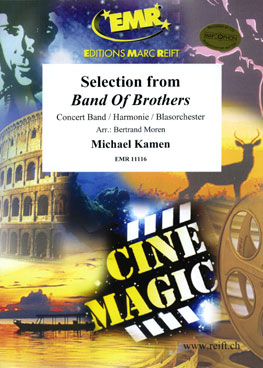 £200.10
£200.10BAND OF BROTHERS, Selection from (Advanced Concert Band) - Kamen, Michael - Moren, Bertrand
Duration: 7:00
Estimated dispatch 7-14 working days
-
£170.00
-
£76.99
Band Of Brothers
Estimated dispatch 10-14 working days
-
 £200.10
£200.10Selection from Band Of Brothers - Michael Kamen
Estimated dispatch 7-14 working days
-
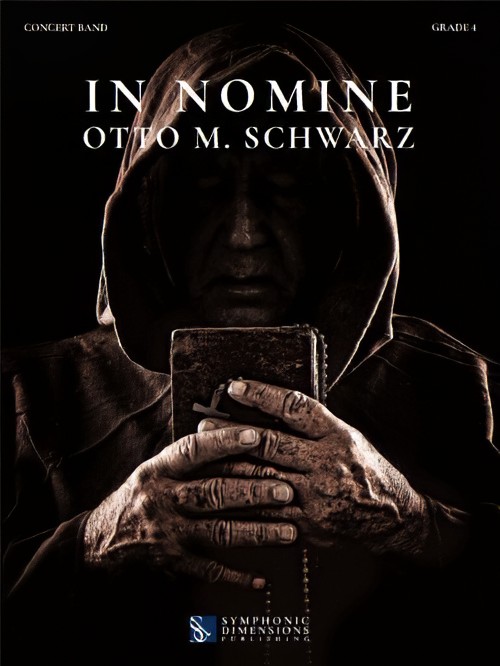 £159.99
£159.99In Nomine (Concert Band - Score and Parts) - Schwarz, Otto M.
How often has something been justified by, declared to be, or blessed as 'in the name of' some cause or other? How can it be that opposing armies and the use of weapons are ever 'in the name of...'? This is a common thread in the history of different faiths. Good was created but evil was committed and all 'in the name of...' This thread is also found in the history of the Premonstratensian Abbey at Wadgassen. The abbey was built in the 12th century on unfertile, desolate moorland, which later evolved into the most powerful religious community in the Saarland. The history of the abbey records quite astounding achievements under the motto desertum florebit quasi lilium ('the desert will bloom like a lily'); but also the harsh treatment of delinquents. The order had its own school, in which children were taught the seven liberal arts (which included music as well as geography and astronomy), but the poor were left to starve outside the abbey walls and were only allowed to eat from the members' leftovers on feast days. The medieval witch trials demanded their pound of flesh, and one group that fell victim were ecstatic dancers who moved wildly to music, which was interpreted as the devil's work. The result: a show trial that sentenced the dancers to death by fire. All in the name of... The year is 1789: Abbot Bordier is in the tenth year of his command. He does not yet know that he is to be the last abbot of an almost 700-year tradition. Not far from the abbey is the French border, which has long been making itself felt with the sound of gunfire, and the brothers continue to keep a nervous eye on it. The first portents of the French Revolution loom, but no one wants to believe it, that is, until the French pound the door down, storm the abbey and come right into the brothers' chambers. In a blind fury, all the pipes of the abbey organ are torn out, icons beheaded with swords and brothers beaten death while numerous buildings are set on fire. The abbey church is in flames. A frantic and desperate escape begins. Abbot Bordier and a handful of brothers make their getaway via the River Saar, adjacent to the abbey, to the neighbouring village of Bous. They survive, but their life, the Premonstratensian abbey, is destroyed. While they flee towards Prague and the sanctuary of the Strahov Monastery, the abbey at Wadgassen is razed to the ground and becomes a stone quarry. The desert blooms once more, however. A few short decades later, a glasswork arises from the foundations of the abbey. As peace returns to the region, it brings jobs and a new vision for its people.Duration: 11.15
Estimated dispatch 7-14 working days
-
 £84.99
£84.99Bahn Frei (Concert Band - Score and Parts) - Strauss, Eduard - Van der Beek, Wil
Eduard Strauss, the third son of Johann Strauss the Elder, was born on March 15, 1835, in Vienna. Originally, Eduard looked for employment in the diplomatic service, but he also studied music theory. He became a harpist in the Strauss orchestra in 1855. In 1862, he joined his two famous brothers Johann Jr. and Josef as a conductor of the family orchestra. Like that of his two brothers, his musical output was prolific: he wrote over 320 separate dances and marches. Apart from the exuberant Bahn Frei (Track Clear), which he wrote in 1869, and a handful of other fast polkas (he excelled in this particular dance form), his music is not as well known as that of his brothers.Duration: 3:00
Estimated dispatch 7-14 working days
-
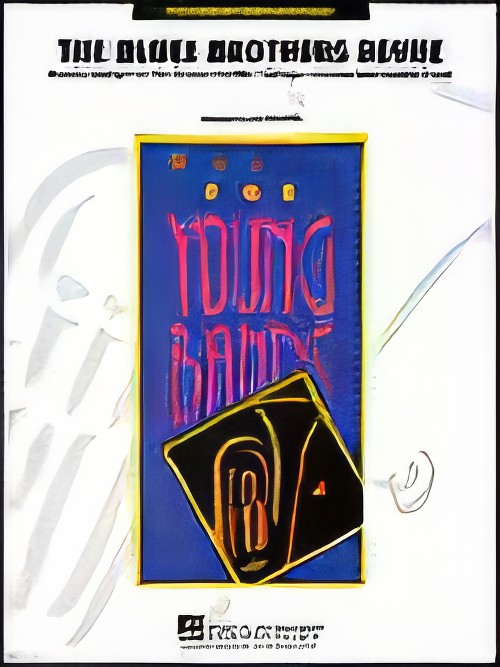 £76.99
£76.99BLUES BROTHERS REVUE, The (Young Band) - Bocook, Jay
You simply can't top the Blues Brothers for high-energy musical entertainment. In this medley of their best-known tunes, Jay Bocook provides an exciting arrangement perfect for any "pops" or lighter program. Includes: I Can't Turn You Loose, Soul Man, Soul Finger, and Everybody Needs Somebody to Love.
Estimated dispatch 7-14 working days
-
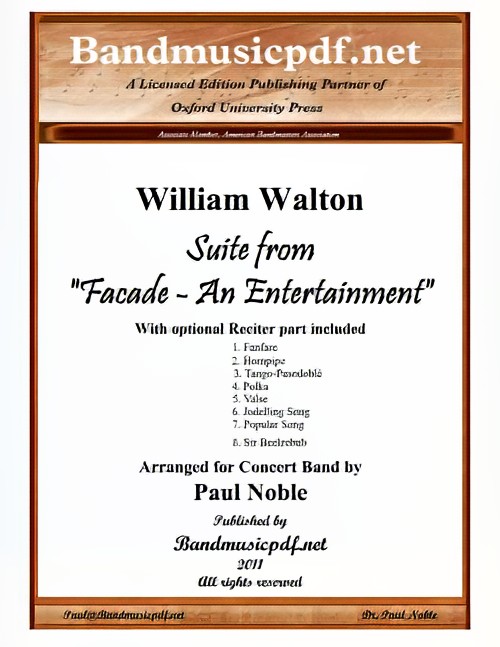 £375.00
£375.00Facade - An Entertainment, Suite from (Concert Band with Optional Narrator - Score and Parts) - Walton, William - Noble, Paul
This Suite from Facade - An Entertainment, composed by William Walton, with poems by Dame Edith Sitwell, presents for the first time a grouping of movements selected and arranged by Paul Noble for Concert Band and optional Reciter. The original composition was written between 1921 and 1928, containing forty-three numbers. They had their origin in a new style of poetry that Edith Sitwell evolved in the early 1920s, poems that her brother Osbert later described as 'experiments in obtaining through the medium of words the rhythm and dance measures such as waltzes, polkas, foxtrots... Some of the resulting poems were sad and serious... Others were mocking and gay... All possessed a quite extraordinary and haunting fascination.' Possibly influenced by the dance references in some of the numbers, Osbert declared that the poems might be further enhanced if spoken to a musical accompaniment. The obvious choice of composer was the young man who lived and worked in an attic room of the Sitwell brothers' house in Carlyle Square W[illiam] T[urner] Walton, as he then styled himself. The now historic first performance of the Facade Entertainment took place in an L-shaped first-floor drawing-room on January 24, 1922. Accompaniments to sixteen poems and two short musical numbers were performed by an ensemble of five players. The performers were obscured from the audience by a decorated front curtain, through which a megaphone protruded for Edith to declaim her poems. This was, as she put it, 'to deprive the work of any personal quality'. The first public performance of Facade was given at the Aeolian Hall on June 12, 1923. By now, fourteen poems had been set, others revised or rejected, and an alto saxophone added to the ensemble. The occasion gave rise to widespread publicity, both pro and contra, and the name of the twenty-one year old W. T. Walton was truly launched. In the ensuing years the Facade has gone through revisions and additions, with full orchestral arrangements of selected movements being made without the Reciter. Former Band Director Robert O'Brien arranged some movements for band, again without Reciter, which are now out of print. So this 'history making' addition is the first opportunity for Concert Bands to present some movements of Facade with poems as originally intended. The luxury of electronic amplification allows the full ensemble to perform without necessarily overshadowing the Reciter. And the arrangements are written with considerable doubling so that the ensemble may play in full, or reduced in size as may be desired for proper balance. And, though not encouraged, the arrangements are written so that the band can perform the music without the Reciter. Program notes are adapted in part from those written by David Lloyd-Jones and published by Oxford University Press in the Study Score of William Walton's Facade Entertainments.
Estimated dispatch 7-14 working days
